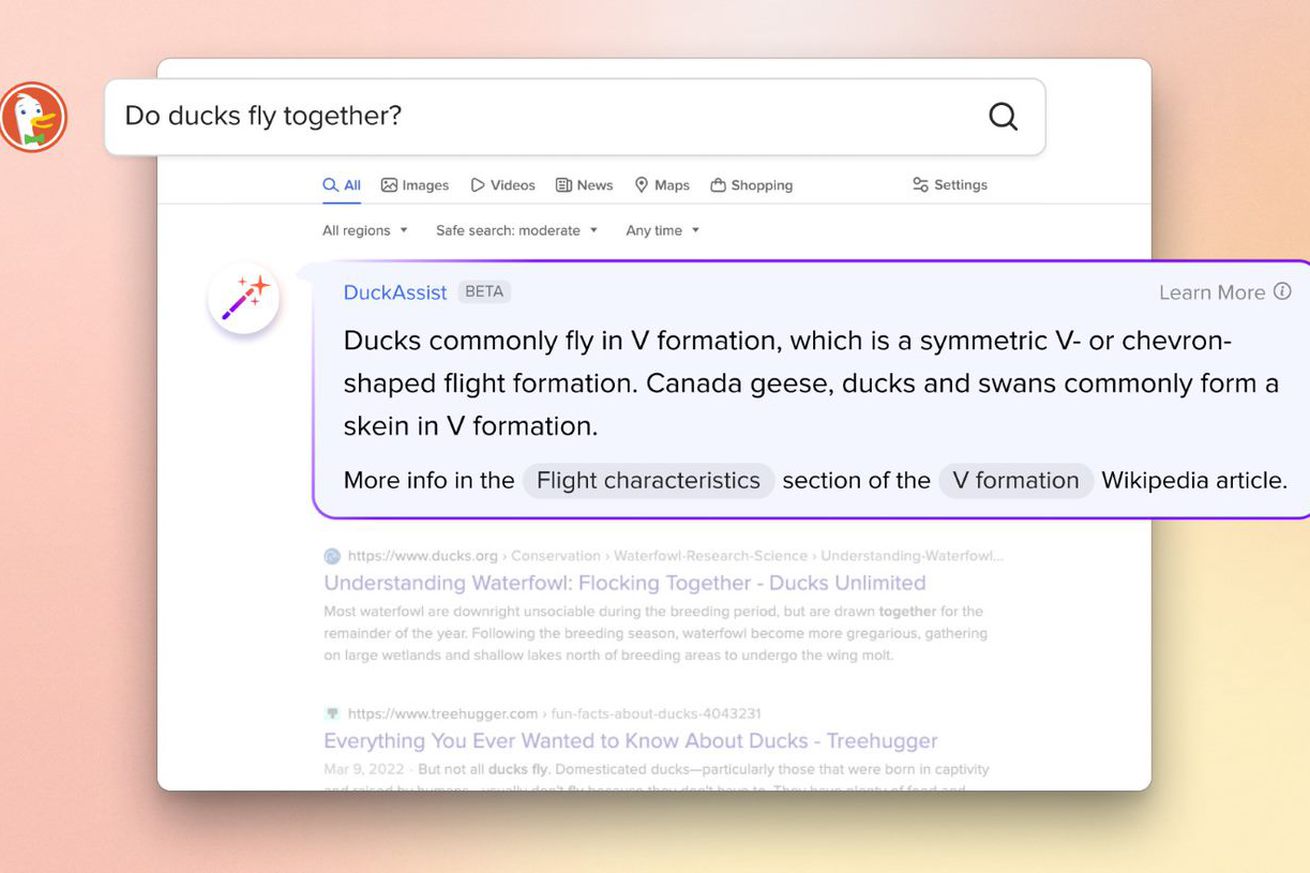
DuckDuckGo’s building AI-generated answers into its search engine
DuckDuckGo has become the latest search engine to incorporate artificial intelligence. The company has announced a new tool, called DuckAssist, that automatically pulls and summarizes information from Wikipedia in response to certain questions.
DuckAssist’s beta is live on the search engine right now — but only through DuckDuckGo’s mobile apps and browser extensions. Gabriel Weinberg, the founder and CEO of DuckDuckGo, says the company will add it to the web-based search engine if the trial “goes well.”
When you enter a question that DuckAssist can help with, you’ll see a box that says “I can check to see if Wikipedia has relevant info on this topic, just ask” at the very top of your search results. Hit the blue “Ask” button, and you’ll get an AI-generated answer using summarized information from Wikipedia. If DuckAssist has already answered a question once before, that response will automatically appear, which means you won’t have to “ask” it the same thing multiple times.
While the tool’s built upon language models from OpenAI, the company that makes ChatGPT, and the Google-backed Anthropic, Weinberg says it’ll retain the same focus on privacy as DuckDuckGo. According to the announcement, DuckAssist won’t share any personally identifiable information with OpenAI and Anthropic, and neither company will use your anonymous questions to train their models.
According to DuckDuckGo, DuckAssist won’t have an answer for every question; the feature is more likely to appear with queries that have “straightforward answers in Wikipedia.” That means queries like “What is a search engine index?” instead of more subjective questions like “What is the best search engine?” DuckAssist’s also more likely to appear if you append “wiki” to your question.
DuckDuckGo says the feature uses the “most recent full Wikipedia download available,” which is around a few weeks old, so it might not be able to help if you’re searching for something later than that. However, the company plans to update this in the future, as well as add more sources for DuckAssist to draw from.
Like other AI tools, DuckAssist isn’t immune to getting things wrong. Weinberg notes there’s “a limit to the amount of information the feature can summarize,” not to mention that Wikipedia may not always have the correct information. But Weinberg believes that having DuckAssist provide summaries in response to questions — rather than relying on its own data — reduces the risk of it making something up.
“Generative AI technology is designed to generate text in response to any prompt, regardless of whether it ‘knows’ the answer or not,” Weinberg writes. “However, by asking DuckAssist to only summarize information from Wikipedia and related sources, the probability that it will ‘hallucinate’ — that is, just make something up — is greatly diminished.”
One of the biggest benefits of DuckAssist — at least to me — is that I don’t have to sign in to use it. Like my colleague Liz Lopatto, I’m just plain tired of logging into things in order to use them, and that’s one of the reasons I’ve been barely using Bing’s chat tool, even though I’ve been granted access to the beta. Hopefully, Microsoft will eventually let everyone use the tool, Microsoft account or not, but having to sign in just eliminates the convenience that AI search tools are supposed to offer.

